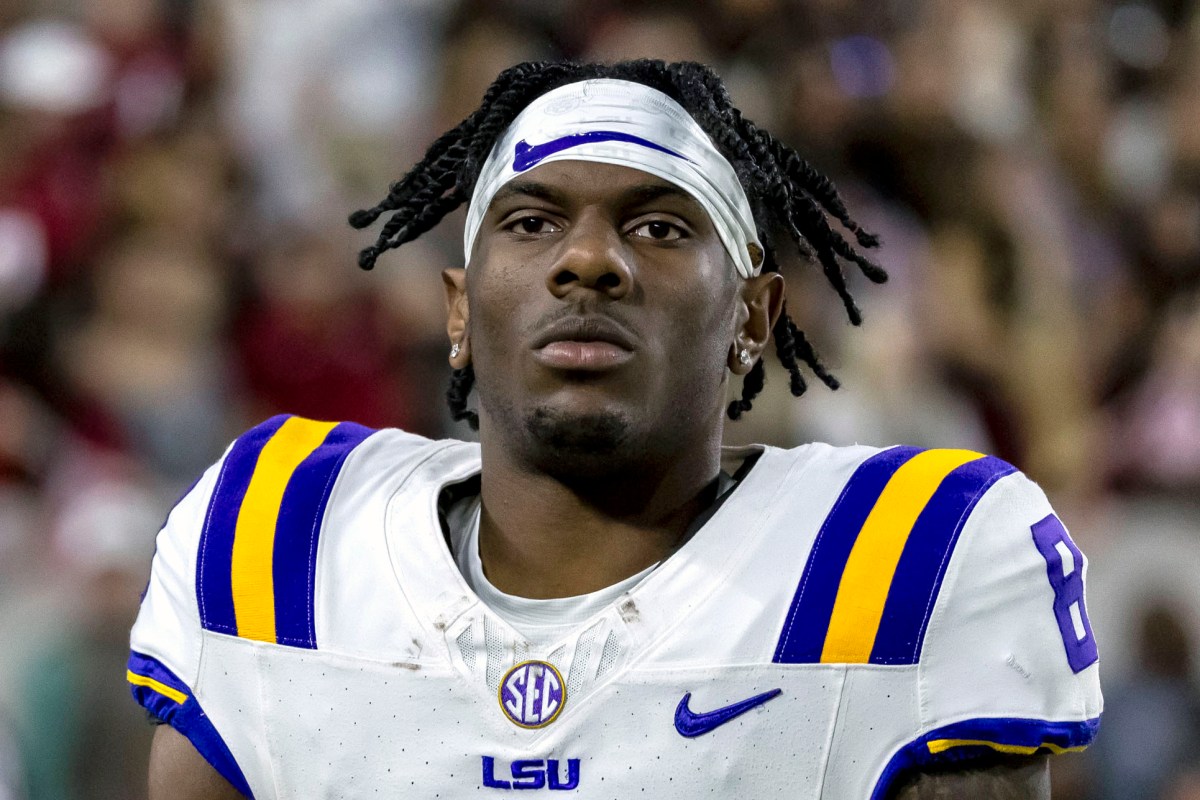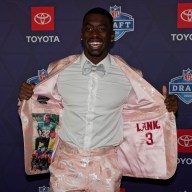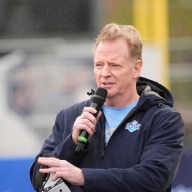Anthony Bourdain is in his last days of vacation. It’s not the globetrotting-around-the-word, eating local specialties kind of trip that has gained the no-nonsense chef a cult following on his Travel Channel show “No Reservations.” No, this is a getaway in the Hamptons with his wife and daughter, whom, he says via cell phone, is snuggled up to dad as he answers our questions about his series’ ninth and final season.
You’re on the road so much for the show. Is this the first vacation you’ve been able to take in a while?
This is the longest vacation I’ve ever had. It was a normal vacation; the most time I’ve ever had with my family. My 5-year-old girl Ariane is resting her head on my chest at this moment.
Then we’ll keep this short! Did this final season feel like a victory lap, or more like just the end of a chapter, considering you’ll be doing another show on CNN?
[It felt like] a victory lap in the sense that we’re going out on a high note with a strong season, we’re still doing our best work, and the show’s still doing well. There was very much the sense with all of us who make the show that it’s a chapter ending, but we’re pretty much all right back to work.
You’ll have the same crew for the CNN show?
Yes, absolutely — same production company, same creative team, producers, camera people, editors, basically the same band that have been travelling and working together for 12 or 10 years.
Same format?
Yeah. It’s basically personal essays about travel, food-centric travel essays, a very similar thing. We start up late October, early November.
One of the great things about “No Reservations” was the way that you documented the areas you traveled to with such authenticity — it was you, exploring a region and culture, through food. And you never shied away from talking about things like war or a nation’s struggles. Looking back, how were you able to get such a non-touristy show like this made in the first place — and then stay on the air for so long?
You know what? I don’t really know. It became clear after two years working on a show called “A Cook’s Tour” with Food Network that they liked the show, it was doing pretty well, but they wanted a cheaper version and less foreign travel — but yet the show was very popular abroad. I think it’s still running in Asia, Latin America, parts of Europe.
So when we left Food Network, there was a desire to find an American network that would fund the show or finance the show intended largely for what we perceived to be for foreign audiences. And I think early on Travel didn’t have a lot going on — I mean, they were known for the World Poker Tour shows and not too much else.
We were surprised, and certainly the network was surprised, that people took to it and that it did well. The company changed ownership a number of times, I think three or four times. I don’t know how many administrations we’ve been through and how many owners of the network there’ve been. But I think we have fit in with that chaos at the top in a sense that nobody ever really figured out what the hell it was that we were doing, so they weren’t able to ask us to do it again. We’ve presented a moving target at all times, tried very hard, you know. Whatever they thought we were doing, we tried to do something radically different the next week. And I think that helps — you don’t want people, particularly television executives, figuring out what it is that you do because they will, of course, want to replicate it if it works and run away from it if it didn’t.
And yet, after every episode of “No Reservations,” viewers are left either wanting to travel to the location or at least learn more about it — which, it seems, is what a successful travel show should do by definition.
I was never looking to do that. I’m happy, very happy, very pleased, very satisfied, when I hear after the fact that a show we made about Vietnam or Spain inspired people to go and that they had a good experience and changed their worldview. That makes me satisfied on a personal level, but we never set out to inform or be advocates or to enlighten. I think you tell a story, you describe an experience or you tell a tale either as a creative enterprise or as straight reportage, and you just tell that as best you can. You try not to lie to people and then you hope for the best.
What I’ve heard year after year after year from people was that [what they love is] what we don’t do, that we’re not the other guy, that we weren’t like the other shows. I didn’t care if I was particularly likeable, I didn’t care if I was particularly informative; it was always a really personal travel essay. We just never gave a s— about the things that most people on television care about more than anything else, which is “Do people like me? Am I likable?” That was just not a concern. We wanted to make the best, most creative, most interesting show we could. The number of people who watched it, we didn’t care about. You can’t think about those things in any creative endeavor.
In later seasons it seemed like you delved even more into the politics and history and current events of some of the places you visited. Is that part of what kind of led to the gig at CNN?
Having talked extensively with them, I know that CNN probably saw a place for us on their network when they saw episodes like the Haiti show or the two Beirut shows — those would seem to fit pretty well with a non-fiction documentary block on a news network. I never consciously started shading toward that direction — I think if you just travel long enough, even if you’re focused very simply on what people eat, what they do every day to be happy, how they get by, you know, where food comes from and what people in any given place eat is already a very political thing. Nothing is more political. I guess that just sort of reared its head the more we traveled. I guess maybe unconsciously we started to look at harder stories to tell because with food and travel, there’s always the threat of becoming insipid and repetitive, so we did start looking at harder stories that maybe were more grey areas.
Another hallmark of the show was the soundtrack, from the great music playing in the background to you hanging out with musicians in different locations. How do you choose which artists you feature?
[For the SXSW episode], we were looking at a cross section: people I want to hang out with and music I have a soft spot for. You get a sense over the years, “Do I want to hang out with this person?” We’re pretty intuitive about that. So if I hang out with an author or musician it’s either because I’m familiar with their work already and am reaching out to them specifically or somebody’s suggested them, in which case I want to read their books before we go hang out together. It is a quality of life issue — if I’m here on this planet for a limited amount of time, I don’t like hanging out with assholes if I don’t have to. Most of the decisions in my life are built around, “Do I have to talk on the phone or have business meetings on a regular basis with assholes?” I will forgo a lot of money and I will avoid plenty of opportunities if it erodes my quality of life. I like a guy like me who likes to collaborate with people and isn’t so much about making the big money tomorrow.
Speaking of collaborations, you are involved in so many projects — from writing on the HBO series “Treme” to contributing to the food magazine Lucky Peach to writing a graphic novel. Are you deliberately making an effort to do more things that keep you closer to home and your family?
Well I’m definitely making a conscious effort, like I’m dropping “The Layover” [his second series on Travel Channel] after this season, and I won’t be doing a similar project. I’m definitely making a conscious effort to travel less and be away from home a little less. But I think most of the things you mentioned, these are things that I do for free. They’re no money, or relatively little money, and I do them for love and the sheer joy. Those are things I do for me and for the pleasure of working with the people who I really respect and admire and who are fun to hang out with.
When do find the time?
You know, look — when [“Treme” creator] David Simon calls, you find the time. [Laughs]
















